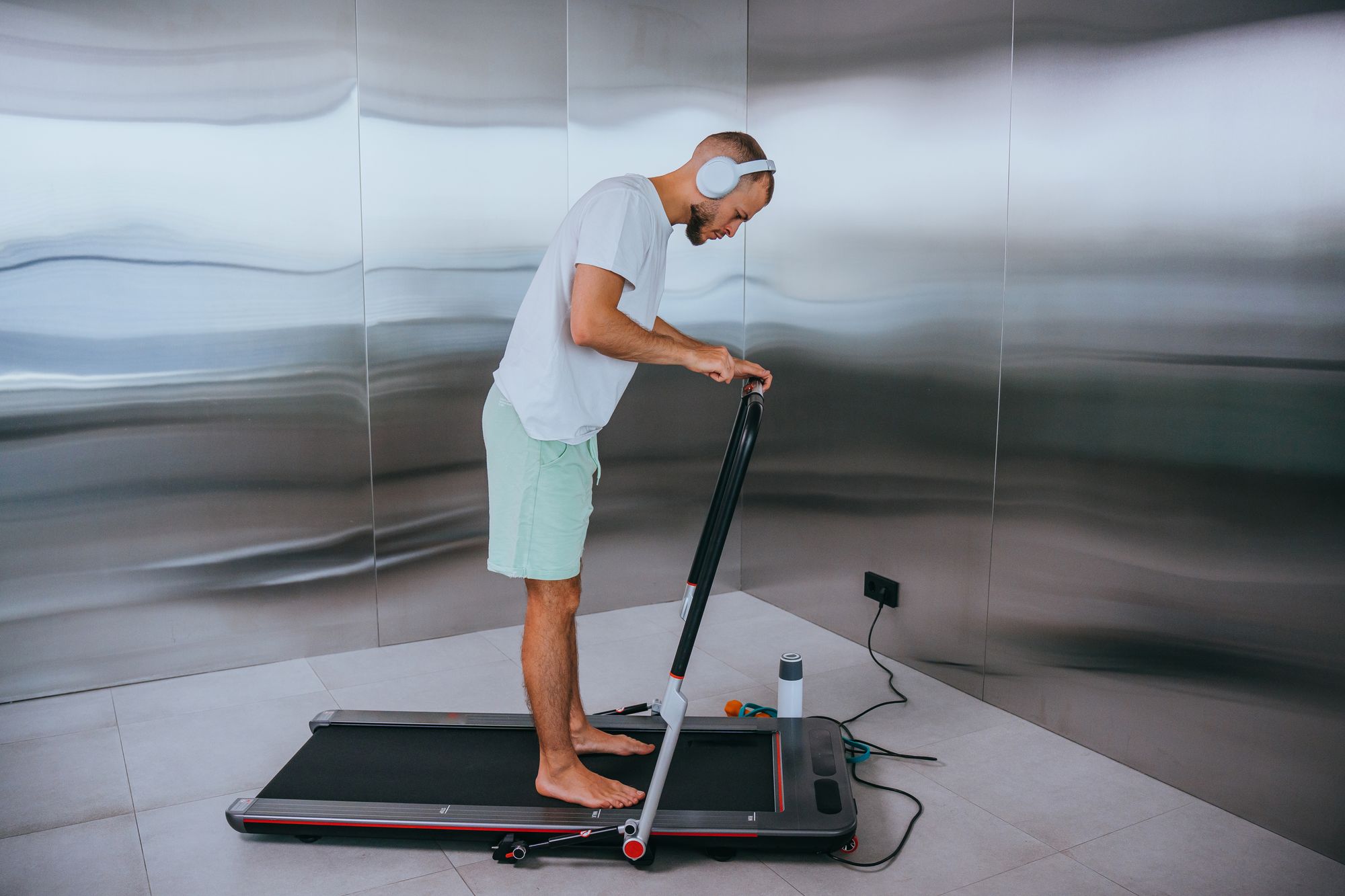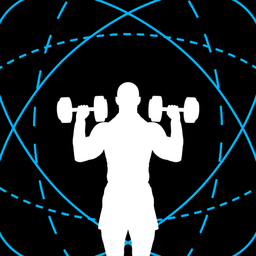Can Fasted Cardio Give You Better Fat Loss Results?
Fasted cardio forces your body to tap into your fat reserves for energy — which means it'll help you lose fat faster, right? Hmm. Answers here.

If given an opportunity to lose fat faster — with the only catch being a lil’ bit of hunger — would you jump at it without hesitation?
Most people would. Fat loss takes a loooong time. And, not to mention, it is difficult AF to achieve 😮💨.
So, what’s this supposed “opportunity”? *fraud bells ringing*
Don’t worry, we’re not driving you to a landing page for a shady MLM product or asking for your bank details.
Instead, all we’re going to do is talk about fasted cardio, which is decidedly not a scam. (Depending on how you see it … but we’re getting ahead of ourselves.)
What is fasted cardio?
Exactly what it sounds like.
Fasted cardio is where you do cardio, um, what’s another way to say “fasted”? Oh, yes. On an empty stomach — where you haven’t had any food for at least 8 to 12 hours prior.
Fasted cardio is typically done first thing in the morning, during the pocket of time after waking up and before breakfast, as this is when the body is naturally in a fasted state.
But it doesn’t have to be.
You could also do fasted cardio at just about any time of the day when you haven't eaten in a few hours.
E.g., if you follow either the alternate-day or the 5:2 intermittent fasting methods, you’d have the freedom of doing fasted cardio at, say, 3 pm or even 3 am.
That said, should you even be doing intermittent fasting in the first place? Are you getting any benefits out of it? Get answers below:

Fasted cardio will lead to better fat loss results … right?
OK. So, some context: your body’s preferred energy source is glucose.
But your blood sugar levels are low when you're in a fasted state. This means your body doesn’t have access to “readily available” glucose for fuel, which forces it to break down the glycogen stored in your muscles and liver for energy.
Guess what, though? That can run out.
And when that happens, your body will burn fat for energy. Ah, so that settles it — fasted cardio increases fat metabolism, which, in turn, enhances fat loss, right?
Sorry to burst your bubble 📌
We’ll let the research do the talking:
This suggests 2 things:
- Fasted cardio doesn’t lead to superior fat loss results than non-fasted cardio, and
- The ultimate determinant of fat loss is adherence to a calorie deficit
You may wonder: "But the theory on how fasted cardio promotes better fat loss results seems airtight, so why doesn’t it translate into reality?”
Researchers have floated out a few theories, including:
Do fasted cardio or not — it’s your choice
Before you take this to mean that you shouldn't do fasted cardio, we're here to tell you otherwise.
You can and should do fasted cardio if: 1) it suits your lifestyle (e.g., the only time you have available for cardio is immediately upon waking up) or 2) you like it.
Sure, fasted cardio doesn’t lead to better fat loss results than non-fasted cardio, but this 2023 study also didn’t find any adverse effects associated with 30 minutes of fasted aerobic exercise in the morning, including:
- Hunger
- Thirst
- Fatigue
- Nausea
In other words, there's no compelling reason for you not to do fasted cardio if you wish.
The only time you should reconsider doing cardio on an empty stomach is when:
- Your cardio lasts more than 30 minutes
- You’re also lifting weights in the same session (unsurprisingly, a 2018 meta-analysis published in the Scandinavian Journal of Medicine & Science in Sports found eating before resistance training improved time to exhaustion compared with fasted conditions — i.e., fasted weightlifting could compromise your muscle growth in the long run)
On that note, you might want to check out this article:

The other key aspects of fat loss
As we've said, ad nauseam, cardio isn’t the only thing you can do to create the necessary calorie deficit for fat loss. It’s important. Of course. But you’d see the best results by combining cardio with:
- Resistance training, and
- A well-balanced, nutritious diet with enough protein (~1.6 grams per kilogram of body weight)
*gulps* Cardio + resistance training + nutrition? That’s a lot to think about and plan for.
Good news: thanks to GymStreak’s automated tech, you don’t have to sweat the hard stuff.
GymStreak does the hard work of creating your workout and nutrition programs for you — based on your goals and preferences — so you can focus on the doing that'll get you leaner than ever.
Your ideal body fat percentage has never been closer to reach. Get started.
Workout Programming + Nutrition Tracking, Off Your Hands
*sigh of relief* We'll guide you through it all — step-by-step. Just download the app, and you'll be making progress toward your dream body like never before.
References
Aird, T. P., et al. “Effects of Fasted vs Fed-State Exercise on Performance and Post-Exercise Metabolism: A Systematic Review and Meta-Analysis.” Scandinavian Journal of Medicine & Science in Sports, vol. 28, no. 5, May 2018, pp. 1476–93. PubMed, https://doi.org/10.1111/sms.13054.
Calories Burned Calculator. https://www.calculator.net/calories-burned-calculator.html?activity=1&activity2=Running%3A+fast&chour=2&cmin=30&cweight=65&cweightunit=k&ctype=1&x=Calculate. Accessed 28 Dec. 2023.
Eglseer, Doris, et al. “Nutrition and Exercise Interventions to Improve Body Composition for Persons with Overweight or Obesity Near Retirement Age: A Systematic Review and Network Meta-Analysis of Randomized Controlled Trials.” Advances in Nutrition, vol. 14, no. 3, May 2023, pp. 516–38. ScienceDirect, https://doi.org/10.1016/j.advnut.2023.04.001.
Jensen, Jørgen, et al. “The Role of Skeletal Muscle Glycogen Breakdown for Regulation of Insulin Sensitivity by Exercise.” Frontiers in Physiology, vol. 2, Dec. 2011, p. 112. PubMed Central, https://doi.org/10.3389/fphys.2011.00112.
Liu, Xiaolong, et al. “The Effects of Six Weeks of Fasted Aerobic Exercise on Body Shape and Blood Biochemical Index in Overweight and Obese Young Adult Males.” Journal of Exercise Science & Fitness, vol. 21, no. 1, Jan. 2023, pp. 95–103. ScienceDirect, https://doi.org/10.1016/j.jesf.2022.11.003.
---. “The Effects of Six Weeks of Fasted Aerobic Exercise on Body Shape and Blood Biochemical Index in Overweight and Obese Young Adult Males.” Journal of Exercise Science & Fitness, vol. 21, no. 1, Jan. 2023, pp. 95–103. ScienceDirect, https://doi.org/10.1016/j.jesf.2022.11.003.
Schoenfeld, Brad Jon, et al. “Body Composition Changes Associated with Fasted versus Non-Fasted Aerobic Exercise.” Journal of the International Society of Sports Nutrition, vol. 11, Nov. 2014, p. 54. PubMed Central, https://doi.org/10.1186/s12970-014-0054-7.


